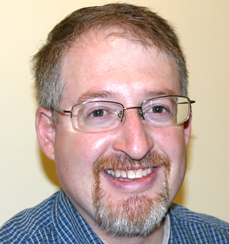Clarendon College and its attorney Chase Hales deserve recognition for the Open Meetings Act training presented at last week’s meeting of the Board of Regents. It was very well done and should be emulated by other local governments, specifically Howardwick.

Too often, elected officials are just pointed in the direction of the online training available, which is good but frequently forgotten. It satisfies the legal requirement that board members have to be trained, but it doesn’t leave the lasting impression that is necessary to keep officials out of trouble.
By contrast, CC’s newest regent – Tommy Waldrop – along with fellow his fellow board members, most of whom have been regents for many years, got the benefit of training specifically suited to their positions complete with scenarios that their unique roles face.
Hales obviously spent a lot of time planning his presentation, which included 32 detailed slides with specifics of all kinds. And yet, as detailed as it was, Hales also kept it simple. Don’t talk about it if it’s not on the agenda. Executive sessions have narrow, specific purposes and limited scope. Stick to the agenda. Subcommittees are subject to the Open Meetings Act and Public Information Act. Stick to the agenda. Board members shouldn’t engage staff other than the president. And last but not least, stick to the agenda.
Astute readers probably picked up on a theme in that paragraph. Basically, Hales warned board members that a meeting is not the time to discuss whatever is bothering them or whatever comes up as a flight of fancy during a meeting. The public, the attorney emphasized, has a right to know what’s going to be discussed prior to the meeting in case they want to be there for that discussion.
Some boards have no trouble with that concept. Other entities, like the City of Howardwick for example, have to yet to completely grasp the idea. Howardwick would benefit greatly from having some personal training, and it would be good not just for the city council but for the citizens themselves.
While things have improved somewhat at Howardwick’s meetings (the sheriff hasn’t had to be there in a while), there is still room for improvement. Agenda items are sometimes vague, which leads to discussion that can’t be anticipated by the public or the council. Action has been taken on some items that wasn’t authorized by the agenda. And worst of all, the audience has become almost fully participating members of the discussion.
Hales’ training for the college board reinforced what is generally understood at local government meetings. “‘Public comment’ is sufficient to hear the public but not to discuss business with the public,” Hales wrote on one of his slides.
That’s an important first point. A second point would be that the public needs to generally keep quiet and let the board deliberate on its own. At Howardwick, there is usually enough difference of opinion on a subject by those elected officials to sufficiently debate any issue without ten or 15 citizens interjecting their thoughts or outrage on the matter.
If Howardwick citizens really want to give their elected representatives a chance to improve their community, then letting them do their job might be a good place to start.
Hales hit all the right notes in his presentation, and other local governments would be well served to engage a qualified person to refresh them on the rules. Laws and the rulings of the attorney general change from year to year, which makes it important to stay abreast of where the boundaries are for what is and isn’t okay.
Clarendon College is to be commended for taking a positive step to make sure things are done the right way. CC Board Chairman Lon Adams also deserves special recognition for attending an open meetings / open records workshop hosted by the Panhandle Press Association earlier this year.
The actions taken by local governments are the public’s business – your business. The Open Meetings Act and Public Information Act are designed to make sure the public – you – have every opportunity to know what your governments are doing, and it is encouraging when local boards take that obligation seriously.
And furthermore…
Chase Hales also zeroed in on something that is the pet peeve of every journalist and champion of open government – the Executive Session.
The topics that can be discussed behind closed doors are limited, he said. He listed the very specific reasons a board can meet in closed session – Real Property Deliberations (if deliberation in open session would have a detrimental effect on the entity’s position); Personnel Matters (related to specific employees or specific positions of current employees); Consultations with an Attorney; specific Economic Development issues; and specific Security issues.
The attorney said boards need to be very specific on their agenda about going into closed session, especially in terms of personnel.
The public’s business, as much as possible, should be conducted in public. If a board is going into executive session frequently, they might do well to step back and make sure they are conducting themselves as openly they should.


Leave a Reply
You must be logged in to post a comment.